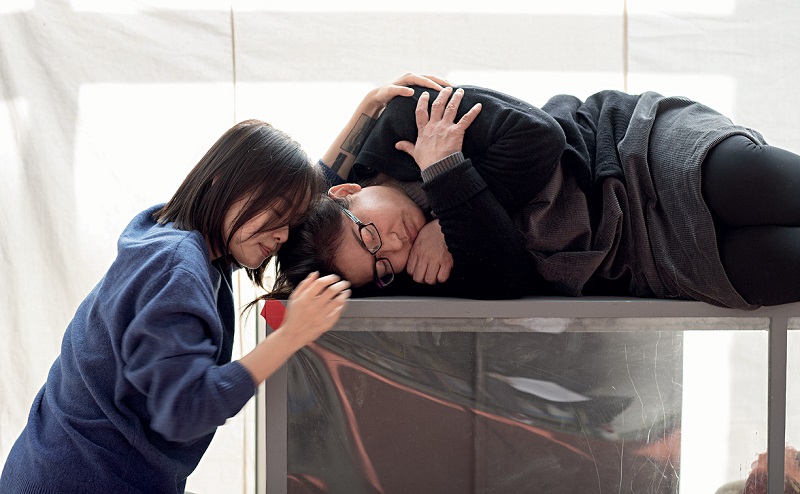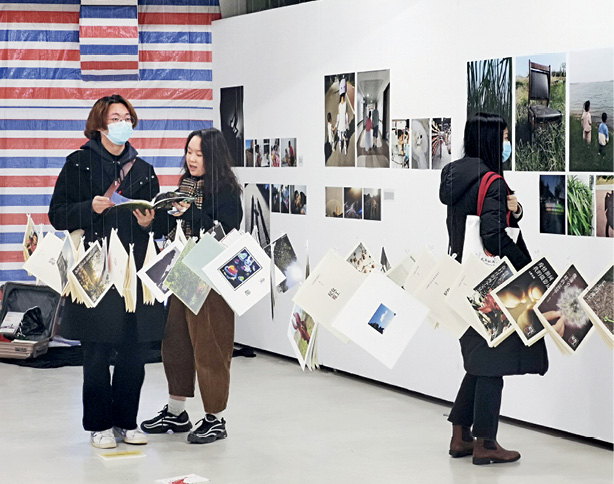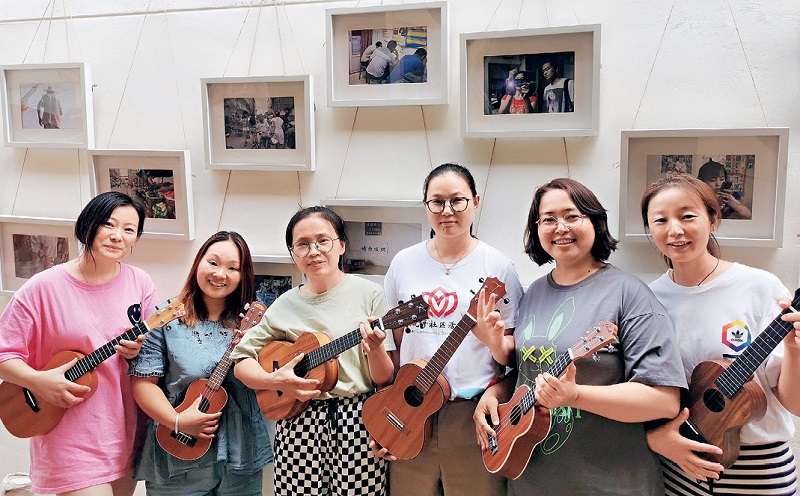
In January 2023, an original short documentary called Song of Freedom was released. It takes an in-depth look into the lives and backstories of a special group of photography enthusiasts at the Mulan Community service center in Beijing.
As the name Mulan (a legendary folk heroine in ancient China) indicates, the service center gathers a group of heroic females pursuing a better life in Beijing. Most of them work as housekeepers, sanitation workers, and waitresses. Organized by Mulan, the ladies develop a kindred spirit and are encouraged to express themselves and support each other.
With the rapid development of China’s economy and the acceleration of its industrialization and urbanization, people in rural areas and less developed regions have been flocking to cities. Migrant workers have long been the backbone of this migration, and more and more women are becoming part of the process. According to data of the seventh national census, the migrant population in China’s mainland reached 370 million as of November 1, 2020, an increase of a 69.7 percent from that of 2010. Statistics showed that the proportion of females in the total migrant population has been on the rise since 2012, reaching 48.5 percent in 2018.

Visitors are looking at the photographs taken by the members of Mulan at the exhibition hall of Enjoy-Art Museum in December 2021. Cheng Xi
The Establishment of Mulan
Qi Lixia, one of the founders of Mulan, was once a migrant worker. She experienced the difficulties and hardships that many migrant workers have faced. When she worked in China’s southern megacity Shenzhen, she learned about a non-profit organization dedicated to helping migrant workers, and participated in many of its activities. There she found moments of relief from pressure of life, and also met female migrant workers like her, with whom she began to discuss social problems behind the difficulties they faced. Through this process, Qi began to realize the empathetic support that this group can give to people like her.
Later, she moved to Beijing and established the Mulan Community Service Center in 2010 with three friends. It set up an activity center in a community where migrant workers gather, providing a safe place for cultural activities where the ladies can relax. Gathering female migrant workers who live within a 10-kilometer radius, the center expands their social circle and enables them to contact frequently and support each other, thus helping them adapt better to urban life.
The activity center is currently located in a one-storey building in Changping District, on the outskirts of Beijing. The rooms are decorated with neatly-placed books, a variety of photos, exquisite handicrafts, and theater supplies. Qi said that the rooms are open at least 300 days a year. The center provides courses in writing, photography, handicrafts, dance, music, and parent-child reading for its members. It also organizes excursions and parent-child activities in parks, scenic spots, and museums.
Over the last 10 years, Qi and her team have moved forward with great passion and a sense of mission to promote the independent development of female workers through empowering them and giving them a voice. “Apart from being a daughter, a wife, and a mother, we girls are an individual person. Don’t forget to be yourself. We hope that every woman is as brave and confident as Mulan, and as beautiful as the magnolia flower, Mulan in Chinese,” Qi told China Today.
To many members, Mulan is their home in Beijing. They no longer feel lonely, and become more confident and wear bright smiles when being together. Wang Zhen, a Mulan member, joined the photography group in the center last year. “We share photos and discuss them in the group, and this kind of interaction makes me very motivated. Photography has enriched my life and made it less boring. It’s not the technique that matters. It’s about going for the shooting. The more you shoot, the more skilled you will be. I will keep going with the hobby,” said Wang.
Mulan is also a place where they have a chance to continue their art dreams. They create songs, plays, dances, and comedy skits, and hold photography exhibitions of their own works. In these activities, gender equality, self-reliance solidarity, and mutual assistance advocated by Mulan have been recognized and practiced by the participants and their families.

Members of Mulan take a group photo during a ukulele class in October 2022. Photo courtesy of Beijing Mulan Community Service Center
Artistic Ventures
Since its establishment in 2010, members of Mulan have organized and participated in various activities. They have appeared on many TV shows. Their photography work has also won an award at the 2013 China Lishui Photography Festival. Qi is proud of the achievements. She believes that their abilities and talents should be discovered, and their voices be heard.
In 2017, a scholar conducted a sociological survey on the choice of breast feeding and formula feeding by parents of different social groups in childcare. When being interviewed, a member of Mulan talked about her feelings about childbirth, which triggered the memories of others. This led to a two-hour discussion on the topic, which inspired the play The Story of Giving-Birth. Qi consulted Zhao Zhiyong, an associate professor at the Central Academy of Drama, for the creation of the play. Qi’s team interviewed 29 female migrant workers over a two-year period. Based on their stories, the play was produced.
The performers of the play were either Mulan members or their relatives. Zhang Meizhen, who played the protagonist, a middle-aged woman, had no performance experience at all. With the encouragement of her instructor and Mulan members, she overcame her shyness and nervousness. She related to the role from her own childbirth experience, and finally completed each performance of the play with aplomb. After more than a year of preparation, the play premiered in January 2019 at Beijing Juyin Theater, allowing the audience to understand the psychology and behavior of what female migrant workers go through in their pregrancy and childbirth. Audiences raved about their performances.
Also inspired by the stories of the 29 female migrant workers, Mulan, together with Professor Zhao and two volunteers, created an immersive drama game named Mulan’s Stories. This new form of interactive theatric experience offers participants a chance to experience female migrant workers’ real life. While playing the game, they make choices based on their own judgment in the four life phases of education, work, marriage, and childbirth. Finishing the game, they will receive an exclusive life report and learn about the actual life experiences of a female migrant worker.
Another successful venture came in 2021, when Mulan and Enjoy-Art Museum launched a comprehensive art project in which the audience not only participates in the drama game, but also takes a close look at female migrant workers’ real lives with exhibits such as their clothes, photos, and records of interviews on this group. This event attracted wide attention and participation by people from all walks of life, and its popularity made the exhibition extend longer. The director of Enjoy-Art Museum said that he had never seen any exhibition that had attracted visitors to stop and watch it again and again. The art project was also taken to China’s western city of Chengdu and southern city Guangzhou, allowing more audiences to hear the voices of female migrant workers and learn about their living conditions.
Qi has always attached importance to enriching the inner spirit of Mulan members through works of art, helping them to explore their abilities and find a unique way of expressing themselves. “No matter how tough life is, Mulan will keep going. I believe more and more people will pay attention to and care for female migrant workers in the future,” Qi said.